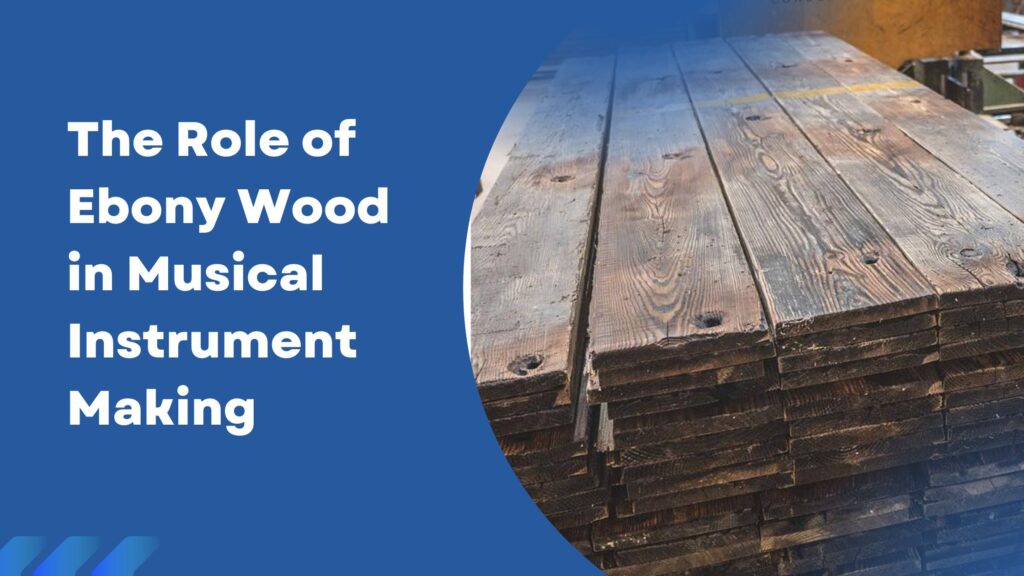Ebony wood has long been prized for its beauty, strength, and durability, & its use in musical instrument making is no exception. From the violins of Antonio Stradivari to the guitars of Gibson & Martin, ebony has played an important role in the construction of some of the world’s most beloved instruments. In this article, we will explore the history and significance of ebony wood in musical instrument making, as well as the different types of ebony wood used in the process.
The use of ebony in instrument making dates back centuries. In fact, some of the earliest recorded uses of ebony in musical instruments can be traced back to ancient Egypt, where the wood was used to make harps and lyres. In the centuries that followed, the use of ebony in instrument making continued to spread, with the wood being used in everything from lutes to cellos.
One of the reasons why ebony is so highly valued in instrument making is because of its density and hardness. This makes it an ideal material for fingerboards, tailpieces, and other parts of the instrument that need to withstand a lot of wear & tear. Ebony is also known for its smooth, glassy surface, which makes it easy to play on and produces a clean, clear sound.
There are several different types of ebony wood that are commonly used in instrument making. The most common type is African black ebony (Diospyros crassiflora), which is native to West Africa and is prized for its dark color and uniform grain pattern. Other types of ebony wood include Macassar ebony (Diospyros celebica), which is native to Indonesia and has a distinctive striped pattern, and Gabon ebony (Diospyros dendo), which is native to Central Africa and is known for its dense, heavy texture.
In addition to its use in fingerboards and tailpieces, ebony is also used in the construction of other parts of the instrument, such as bridges, nuts, and tuning pegs. Ebony pegs, for example, are prized for their ability to hold tuning & their smooth, easy-to-turn surface.
Despite its many benefits, the use of ebony in instrument making is not without controversy. In recent years, concerns have been raised about the sustainability of the ebony trade, as well as the working conditions of those involved in harvesting and processing the wood. Some instrument makers have begun to explore alternative materials, such as composite materials or other types of hardwood, in order to reduce their reliance on ebony.
In addition to the significance of ebony wood in musical instrument construction, it is worth noting the role of companies like White Knight Consulting LTD in supplying this valuable material. As a timber wood supplier company, White Knight Consulting LTD plays a crucial role in ensuring the availability of high-quality ebony wood to instrument makers. However, as concerns about the sustainability of ebony wood increase, it will be essential for companies like White Knight Consulting LTD to continue to explore sustainable sourcing and alternative materials to meet the demands of the music industry. In conclusion, the importance of ebony wood in music & instrument making cannot be overstated, but it is crucial to consider its impact on the environment & to seek sustainable solutions for the future.





More Stories
How Can Marriage Retreats Help Your Relationship? Friendly Tips and Advice You’ll Love
What Makes Los Angeles Magic So Special? A Fun Guide for Parents Looking for Kids Magic Show Los Angeles
How to Use a YouTube to MP3 Converter Safely and Easily – A Simple Guide for Everyone